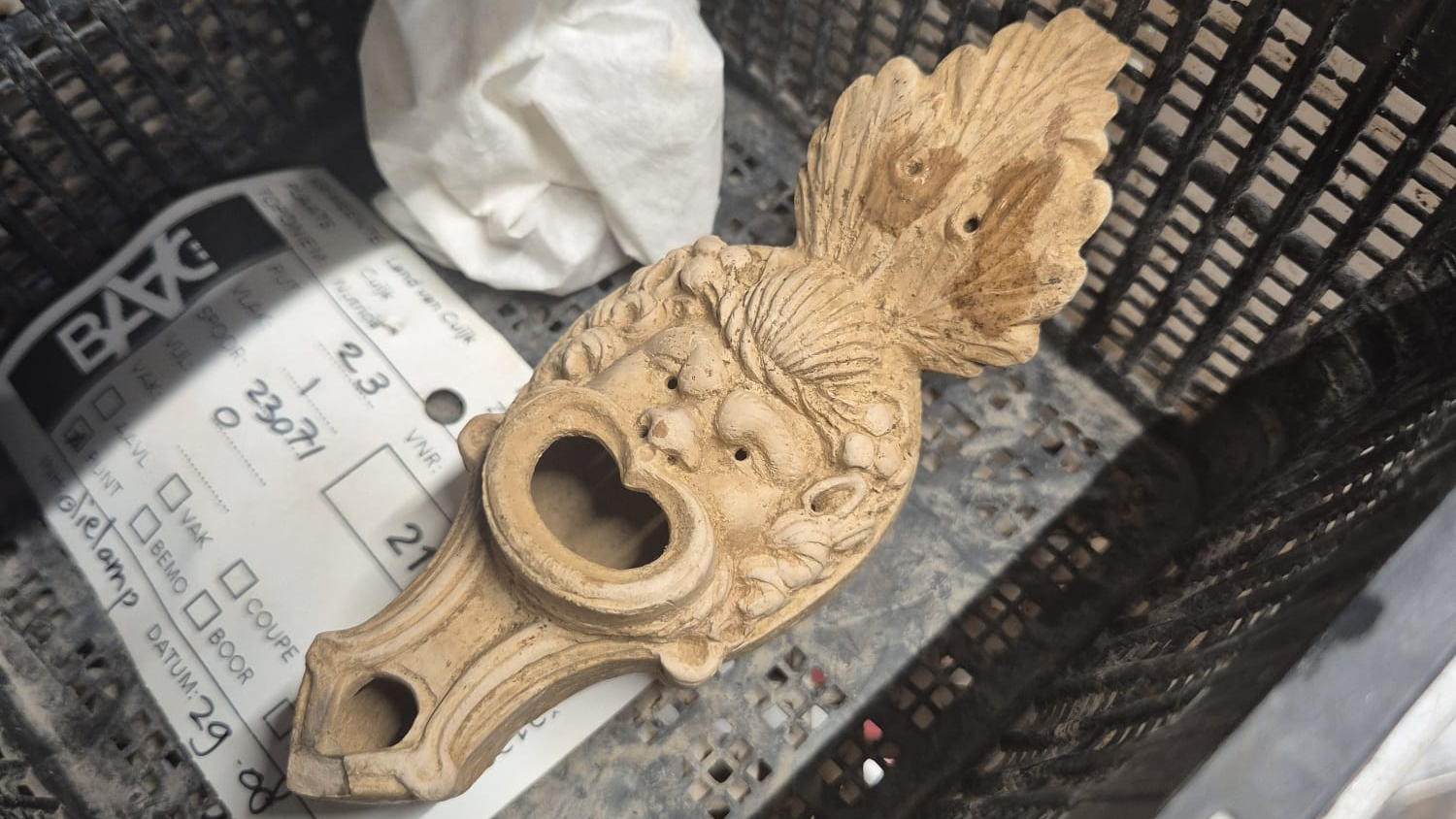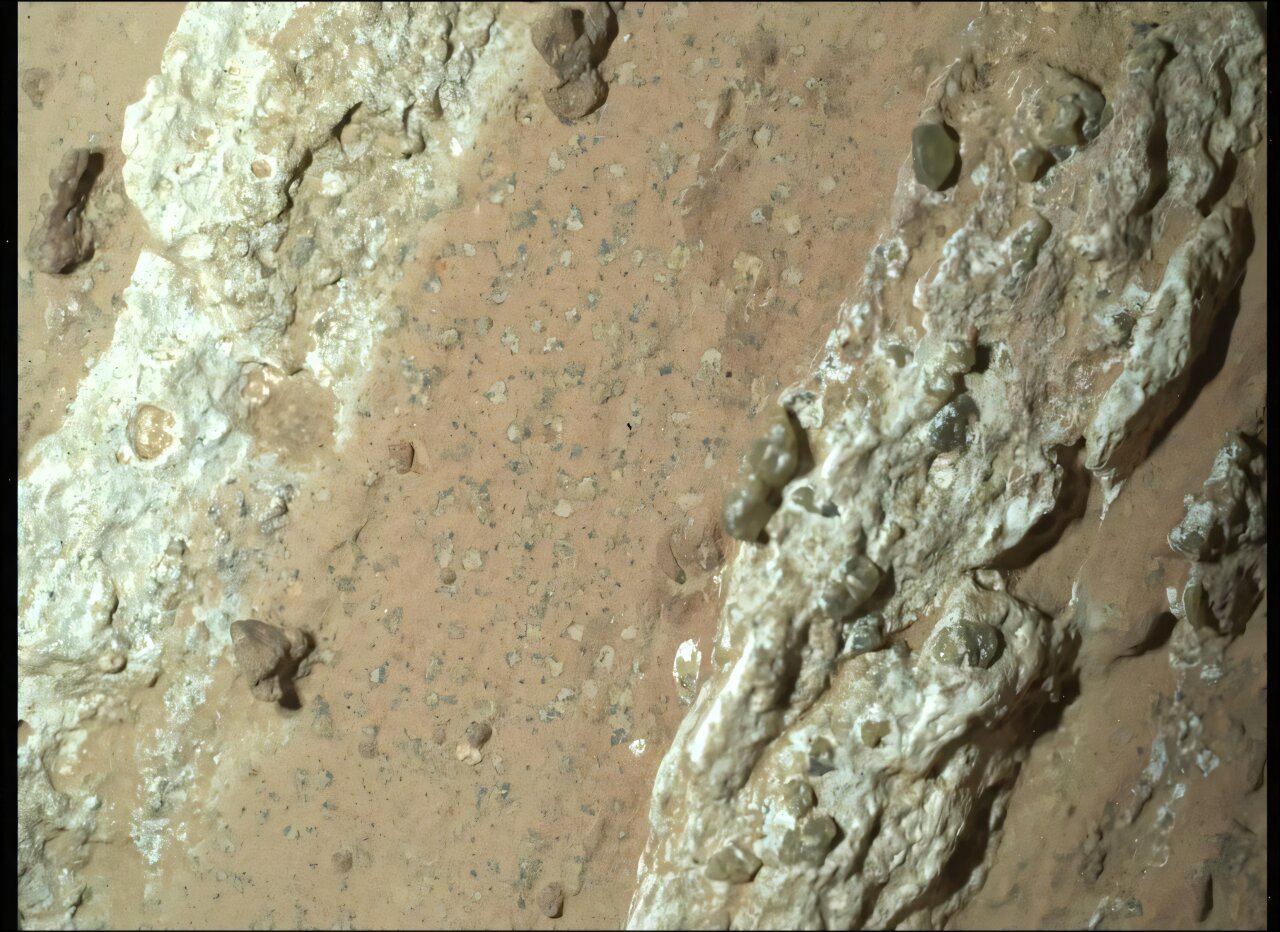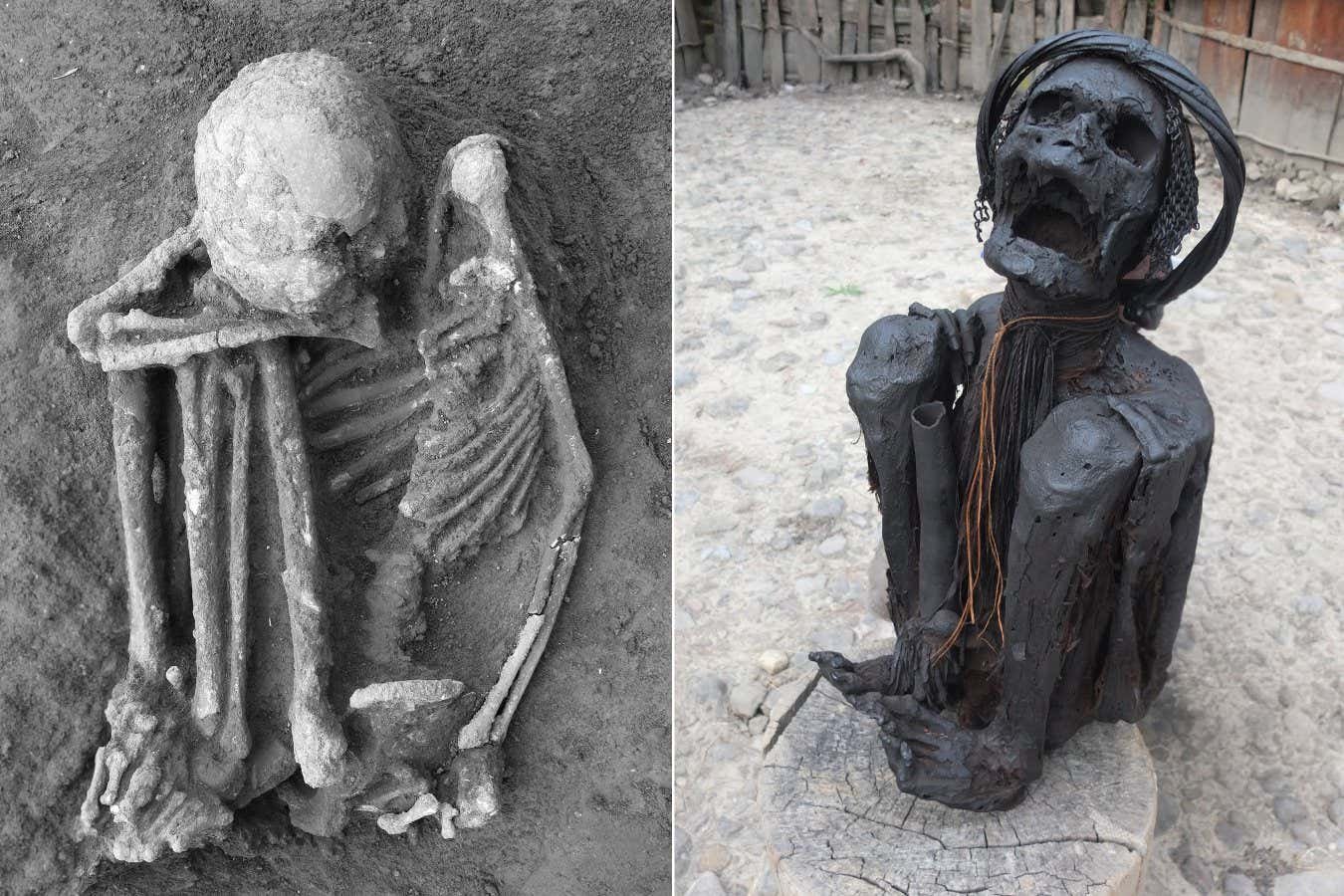While excavating a massive Roman cemetery in the Netherlands, archaeologists discovered an unusual oil lamp that may depict the ancient god of wine.
The “filling hole,” where oil would have been poured, looks like a comically large and open mouth on a person’s face, while a handle above the face resembles a fancy leaf.
Van Kampen and a team of archaeologists uncovered the lamp last month in their ongoing excavation of a Roman cemetery in the modern Dutch town of Cuijk, near the border with Germany. In Roman times — from about 50 B.C. to A.D. 400 — the town was known as Ceuclum, and it was inhabited by a Germanic tribe that Julius Caesar called the Batavi.
Today, most of the cemetery is covered by buildings and roads, van Kampen said, but it extends at least 15 acres (6 hectares). “The density of the graves is much higher than suspected,” he said, “and we are expecting to recover 350 to 400 graves.”
The archaeologists found the oil lamp in one of the roughly 70 graves they have already excavated. The lamp, which dates to the second century A.D., was discovered along with four ceramic plates, two jugs, a cup, a glass bowl and a bronze bowl, van Kampen said.
The dishes in the grave probably once contained food and drinks, according to van Kampen. “The lamp was part of this set and should be seen as an object providing light in the journey to the afterlife,” he said.

Related: Skull of bear held captive to fight Roman gladiators discovered near ancient amphitheater in Serbia
Archaeologists have cleaned the lamp but are still debating the meaning of the decoration. “Some think it might depict Bacchus,” the ancient god of wine and debauchery, van Kampen said, but “it is probably an actor’s mask.”
Comedy and tragedy masks are a well-known symbol of the performing arts and go back to ancient Greece. Actors would wear the masks to emphasize their expressions and to change characters as needed. Masks were also associated with Bacchus (Dionysus or Dionysos in Greek mythology) — the god of wine and a patron of the theatrical arts — as his devotees often wore masks when worshipping him.
Only a fraction of the Ceuclum cemetery has been excavated so far. The archaeologists expect to find many more Roman artifacts — and likely even richer graves — as they excavate further.




